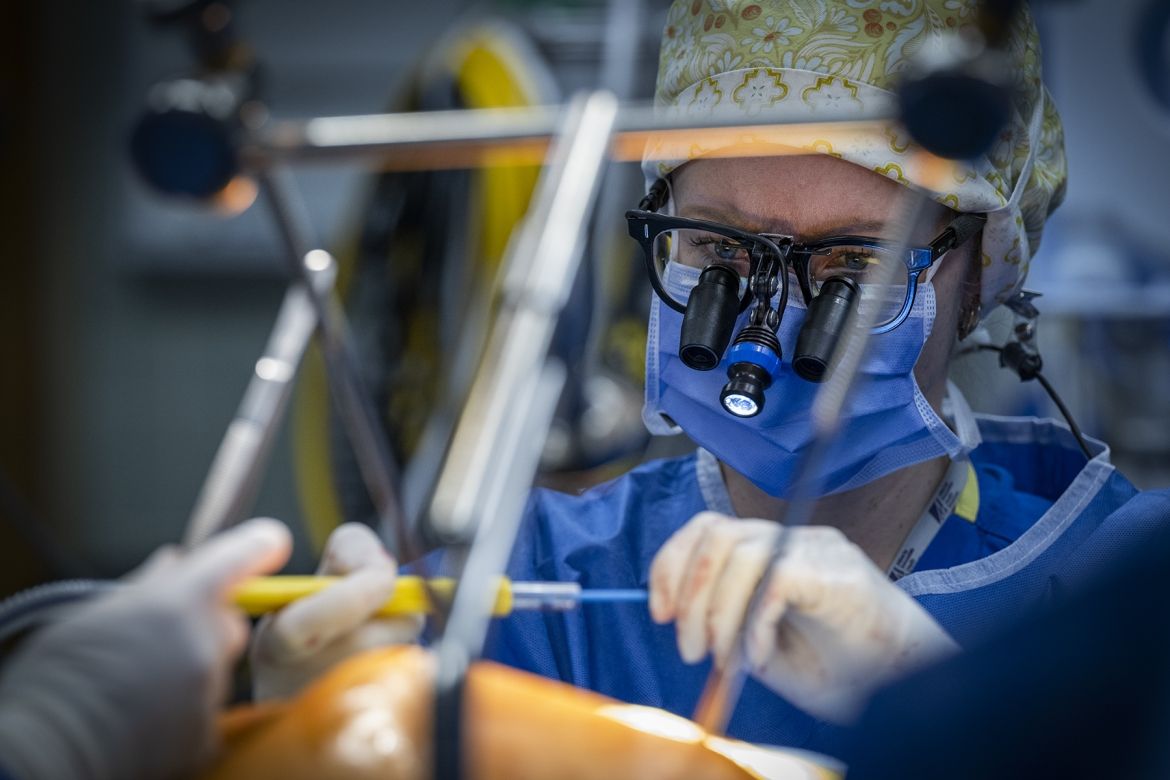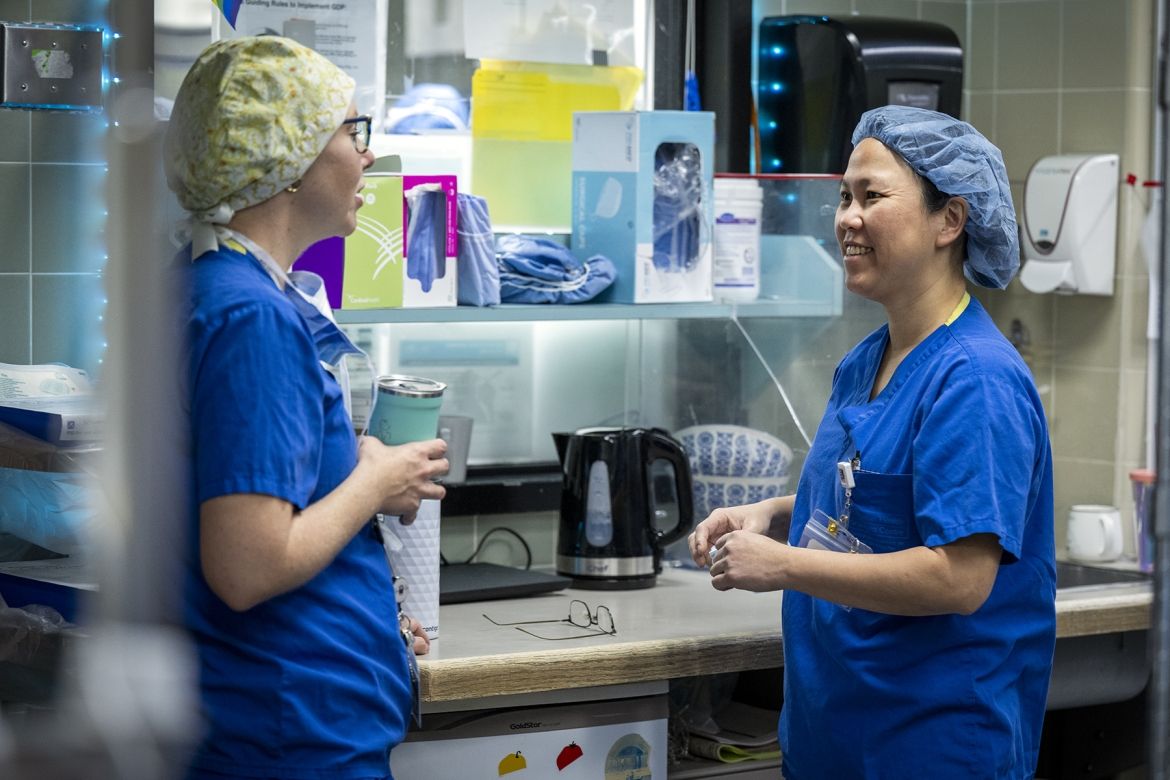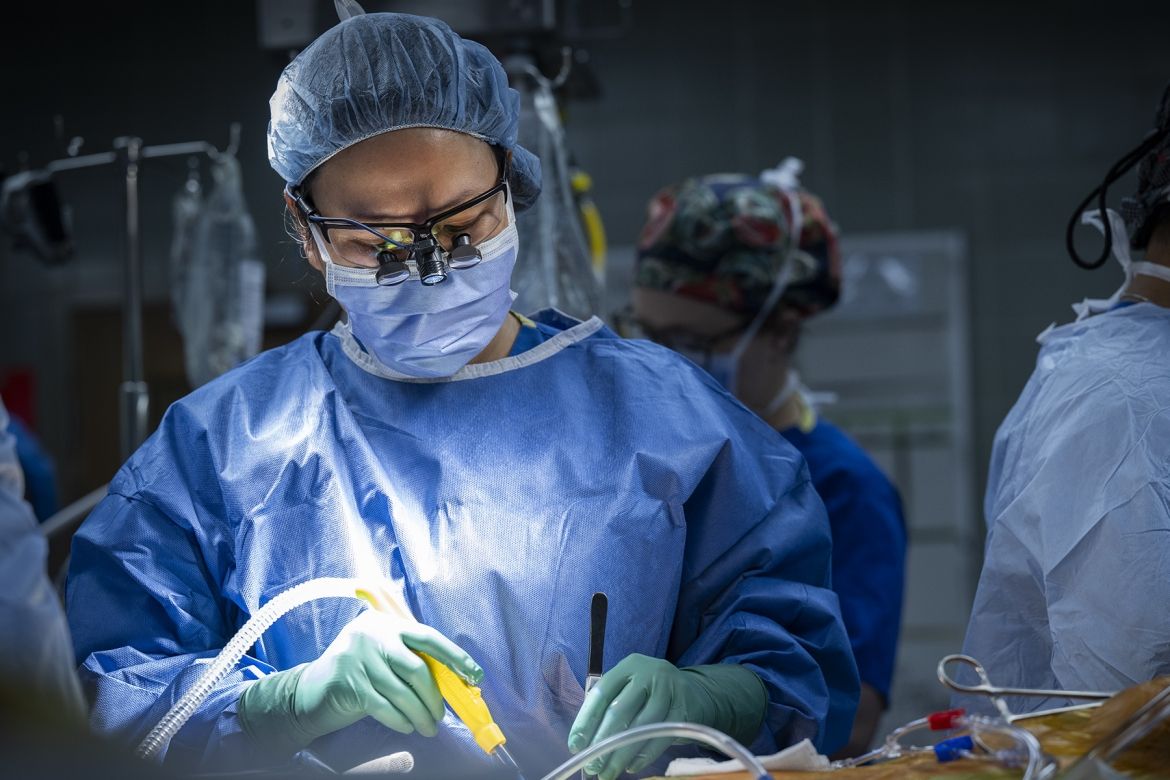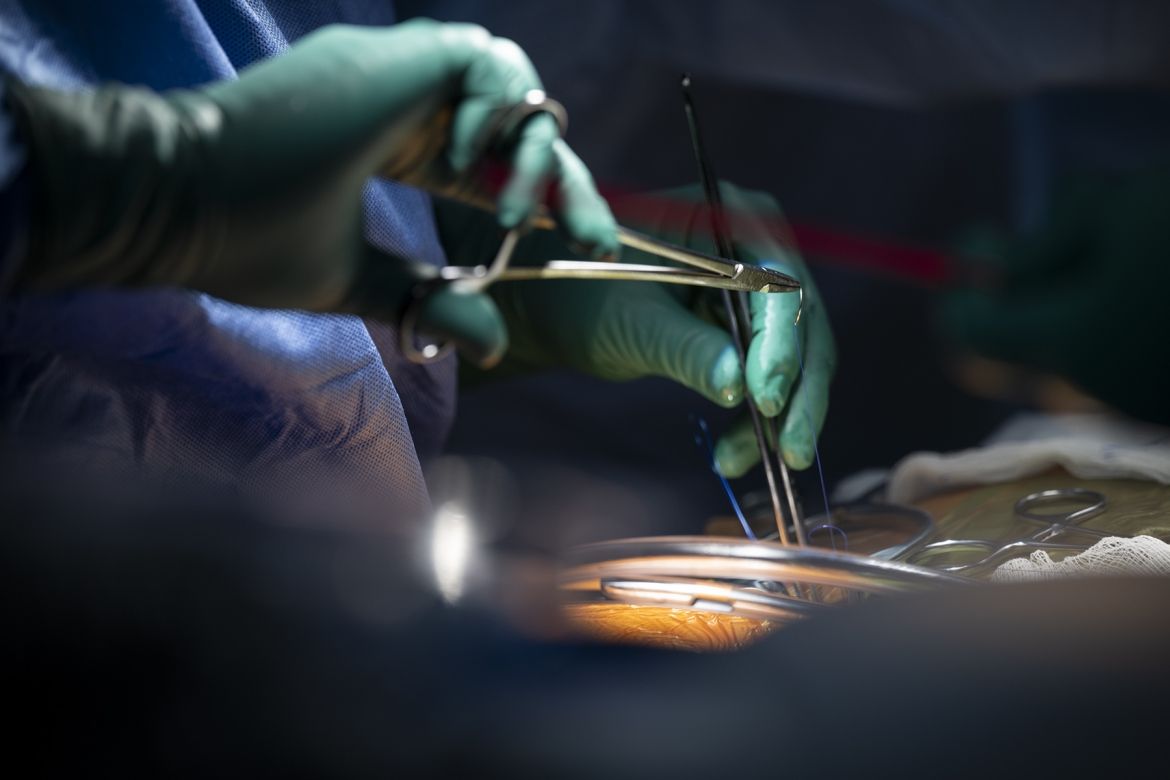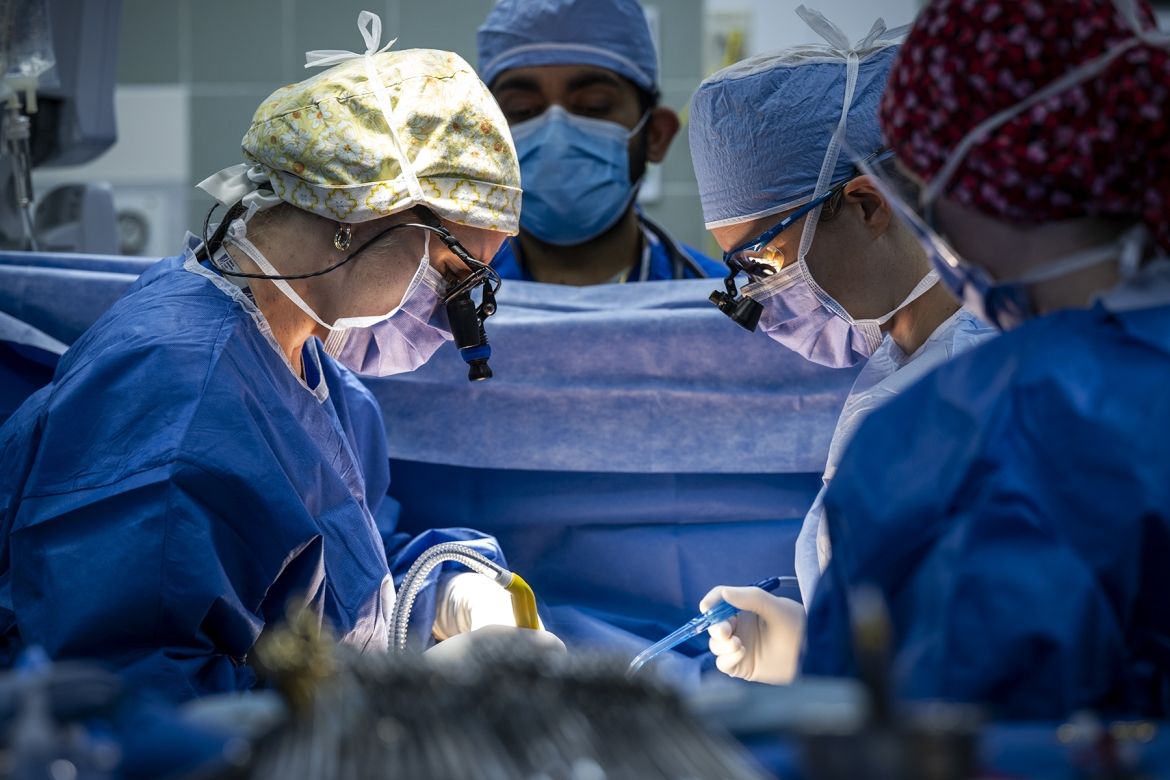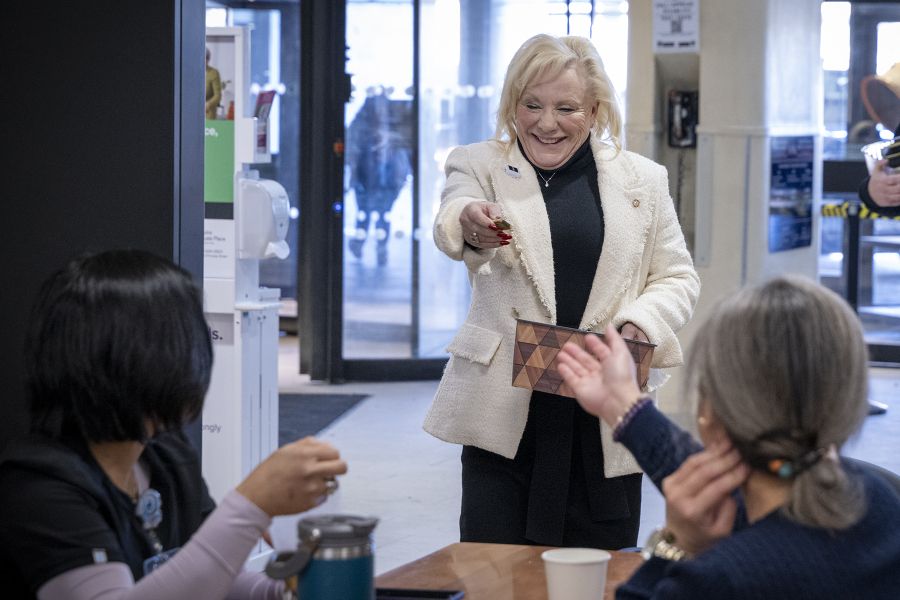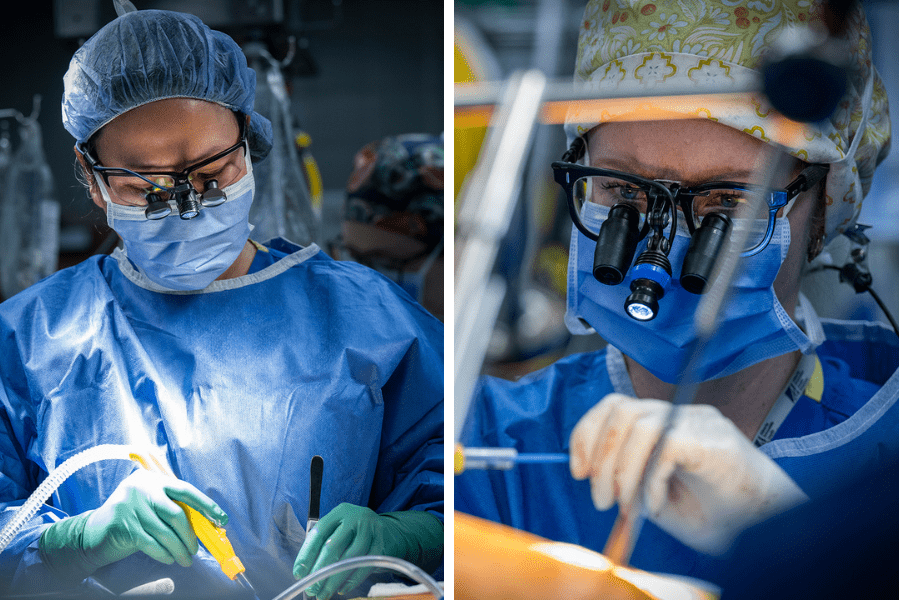
Heart surgery is definitely not a one-person job, but at the centre of it is the surgeon, and the majority of the time at Kingston Health Sciences Centre (KHSC), the surgeon is a woman.
Two of KHSC’s three cardiac surgeons are women: Dr. Carolyn Teng and Dr. Holly Mewhort.
Even when the number increases to the usual four cardiac surgeons, Drs. Teng and Mewhort will make up, at minimum, 50 per cent of the team. That's well above the 2019 national average of 11 per cent.
Does gender diversity matter?
According to Dr. Teng, “Gender diversity matters in the way that all diversity matters. Diversity brings new perspectives and understanding, which helps the medical community provide more fulsome and compassionate care.”
Training to be a cardiac surgeon is rewarding but is also long and can be very demanding. “I think there is still a gender bias in the roles women play outside of their professions that makes them feel they have to choose between their work life and their family life,” says Dr. Teng.
Mentorship may be part of the answer to bridging the gender gap.
“Having a mentor you can relate to, who has surmounted similar challenges and can share their experiences for better or worse can have a huge impact on your career path and trajectory,” says Dr. Mewhort.
“More female surgeons means more opportunities for trainees to be guided into surgical professions,” adds Dr. Teng.
Times are changing
In the past, Dr. Teng has had full conversations with patients about the surgery she would be performing, only to have them address their questions to the male medical student standing next to her.
“Luckily, times are changing and this doesn't happen frequently anymore; it also helps that I look older now.”
Dr. Mewhort says that thanks to Google, many of her patients have looked her up and know all about her before they meet.
Still, there remains a general assumption that a cardiac surgeon will be male, and it’s not uncommon for patients to be surprised when she and Dr. Mewhort introduce themselves as their surgeons.
What does it take to be a heart surgeon?
It’s probably obvious that a surgeon must have highly developed technical skills in the operating room. What might not be observable is the importance of clinical judgement and the ability to really listen to patients.
“Seeing a patient as a whole, rather than just a specific heart issue" says Dr. Teng, "allows us a better understanding of how to help that patient meet their goals of care.”
Dr. Mewhort often asks patients what they like to do during their days. “Being able to get them back to doing what brings them joy is the ultimate reward,” she says.
Both doctors were drawn to cardiac surgery because they liked the hands-on technical aspect of surgery, and found cardiac physiology fascinating.
“As I started to do rotations in cardiac surgery, I was struck by how very sick patients could undergo a complex operation and be up and walking the next day.
“There is such a sense of awe and privilege when holding a heart in one's hands and being able to fix it. Also, the feeling that you have made a positive impact on a patient's life is very gratifying.”
Drs. Mewhort and Teng on the job
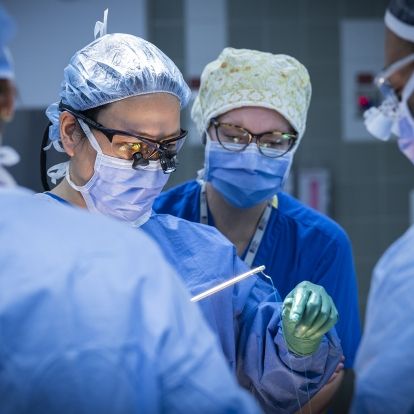
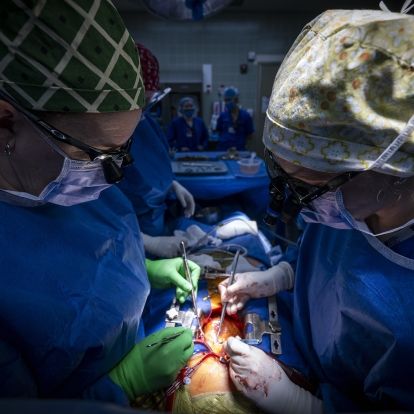
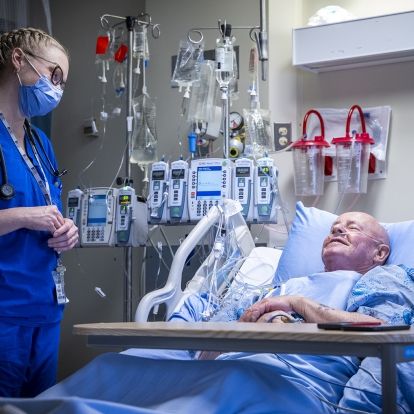
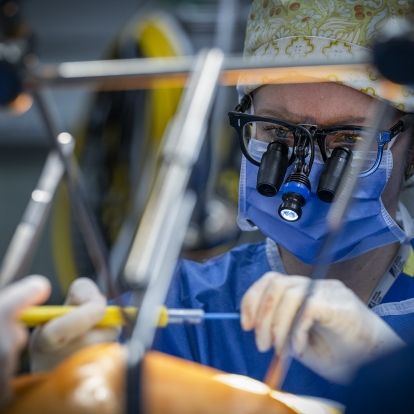
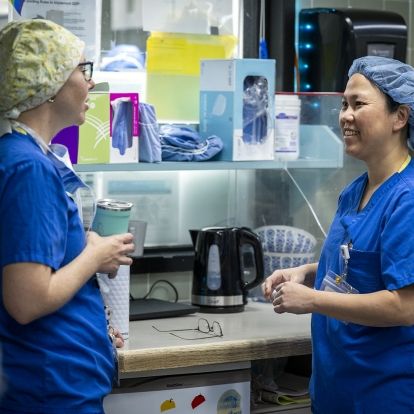
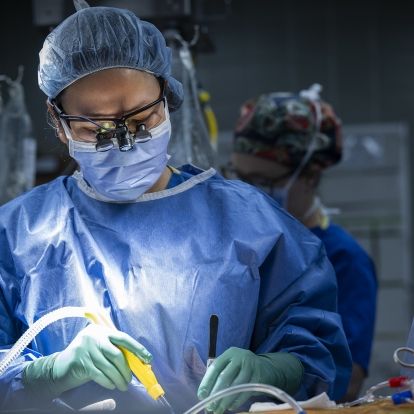
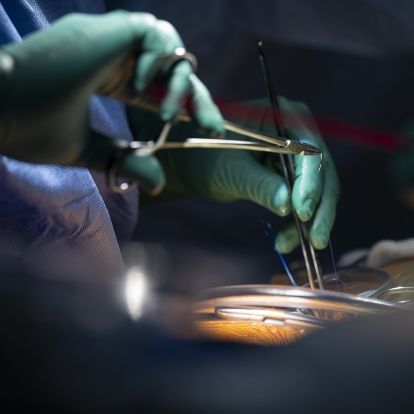
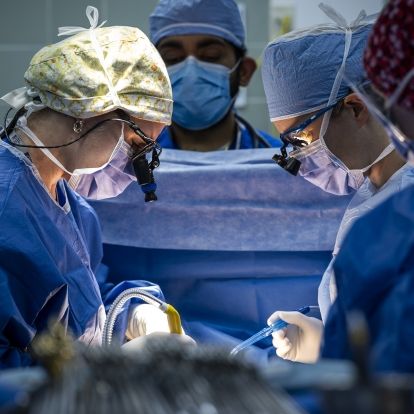
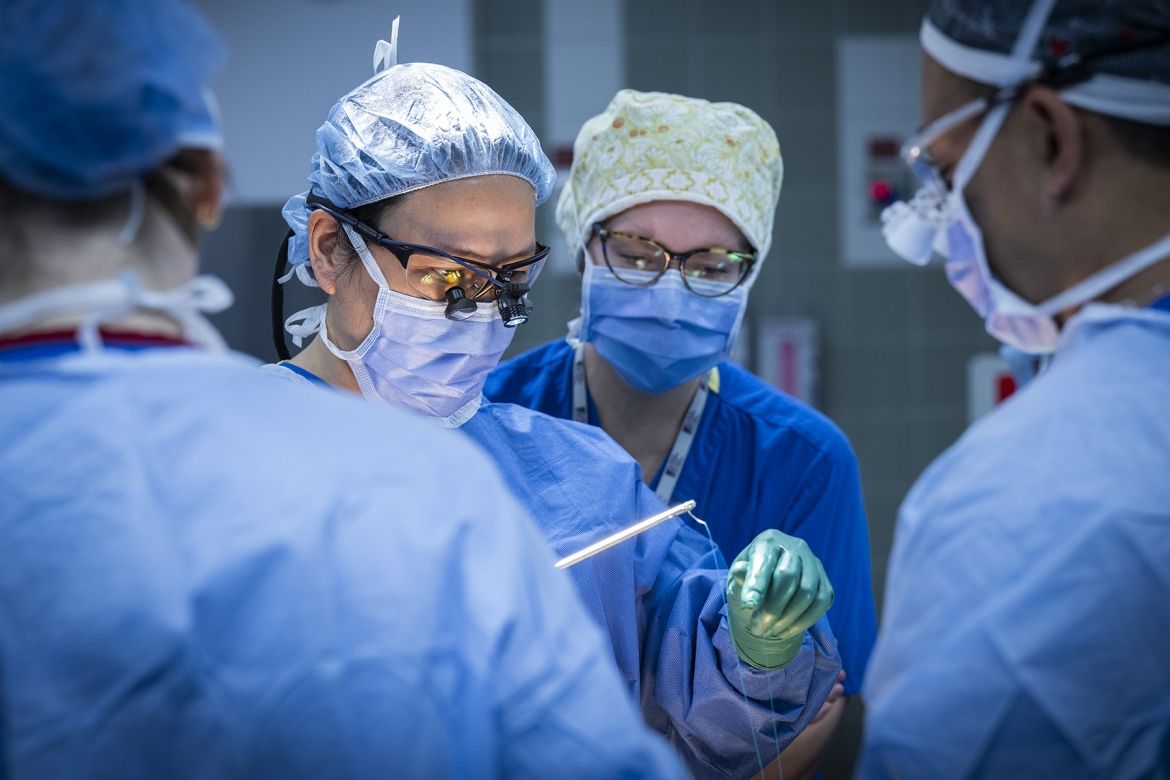
Dr. Teng (left) and Dr. Mewhort during a minimally invasive mitral valve repair.
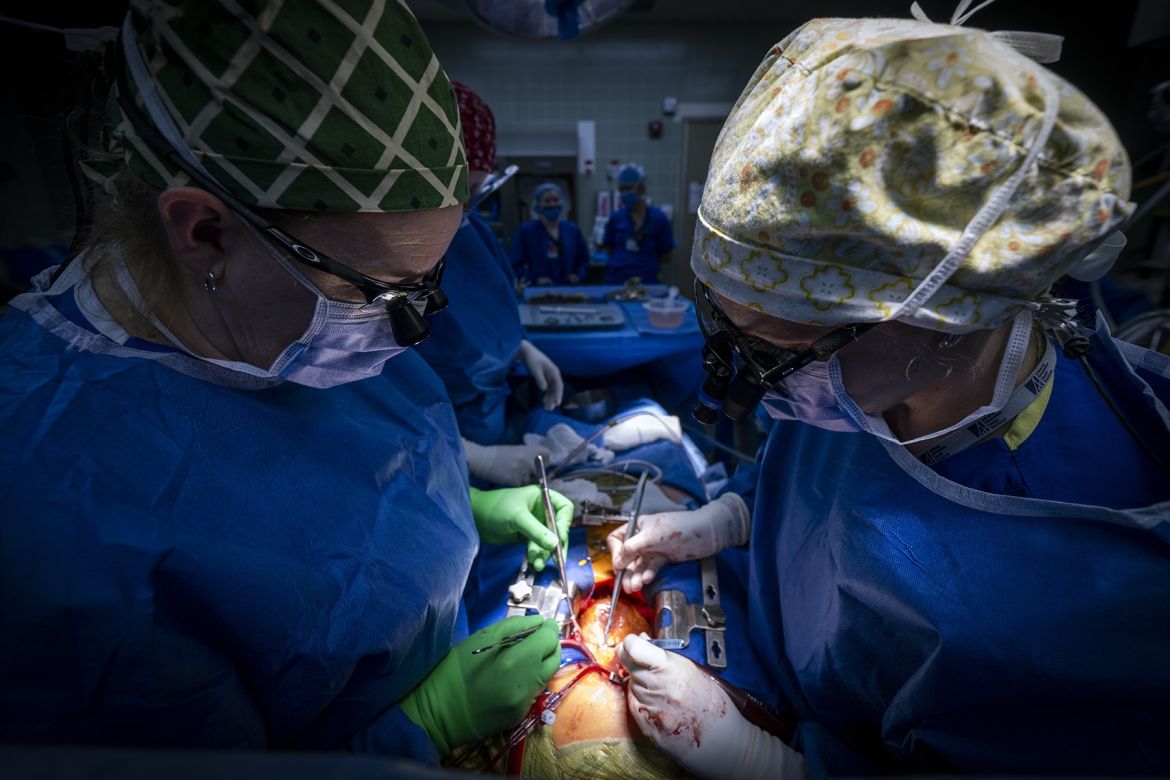
Dr. Mewhort (right) with registered nurse first assistant Tammy Richards.
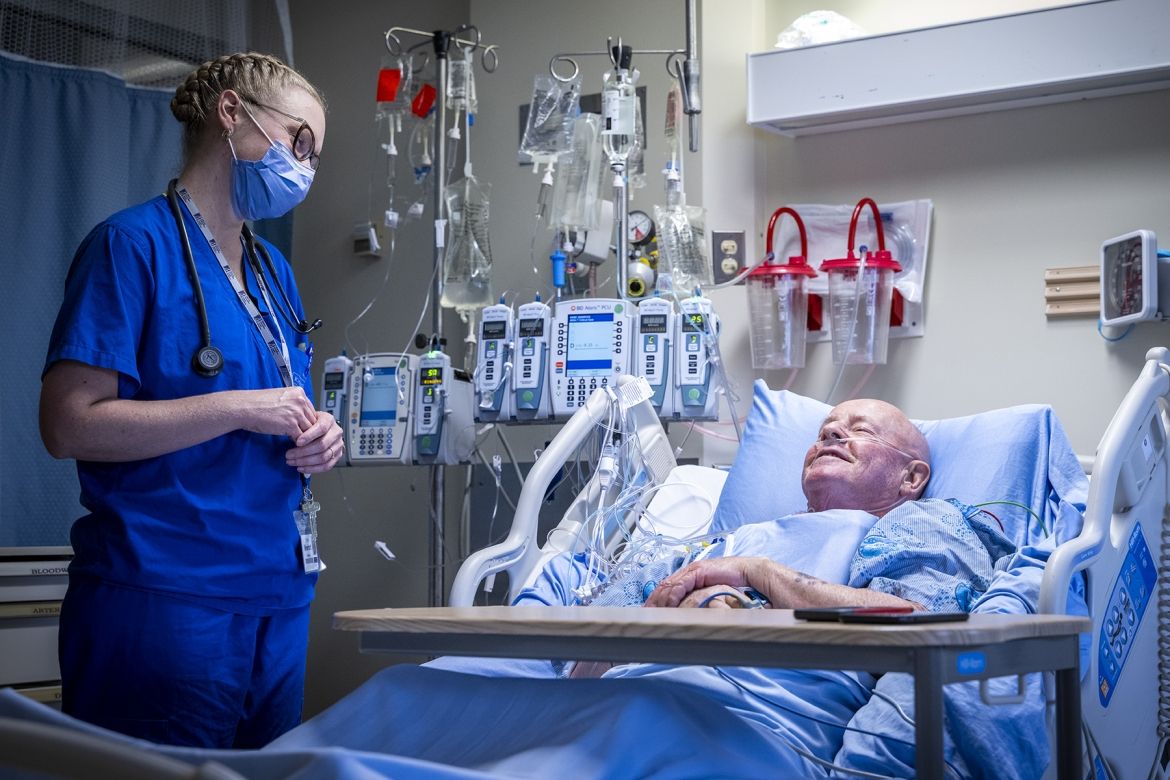
Dr. Mewhort visits a cardiac surgery patient in KHSC's Cardiac Sciences Unit, the only cardiac Intensive Care Unit in southeastern Ontario.
